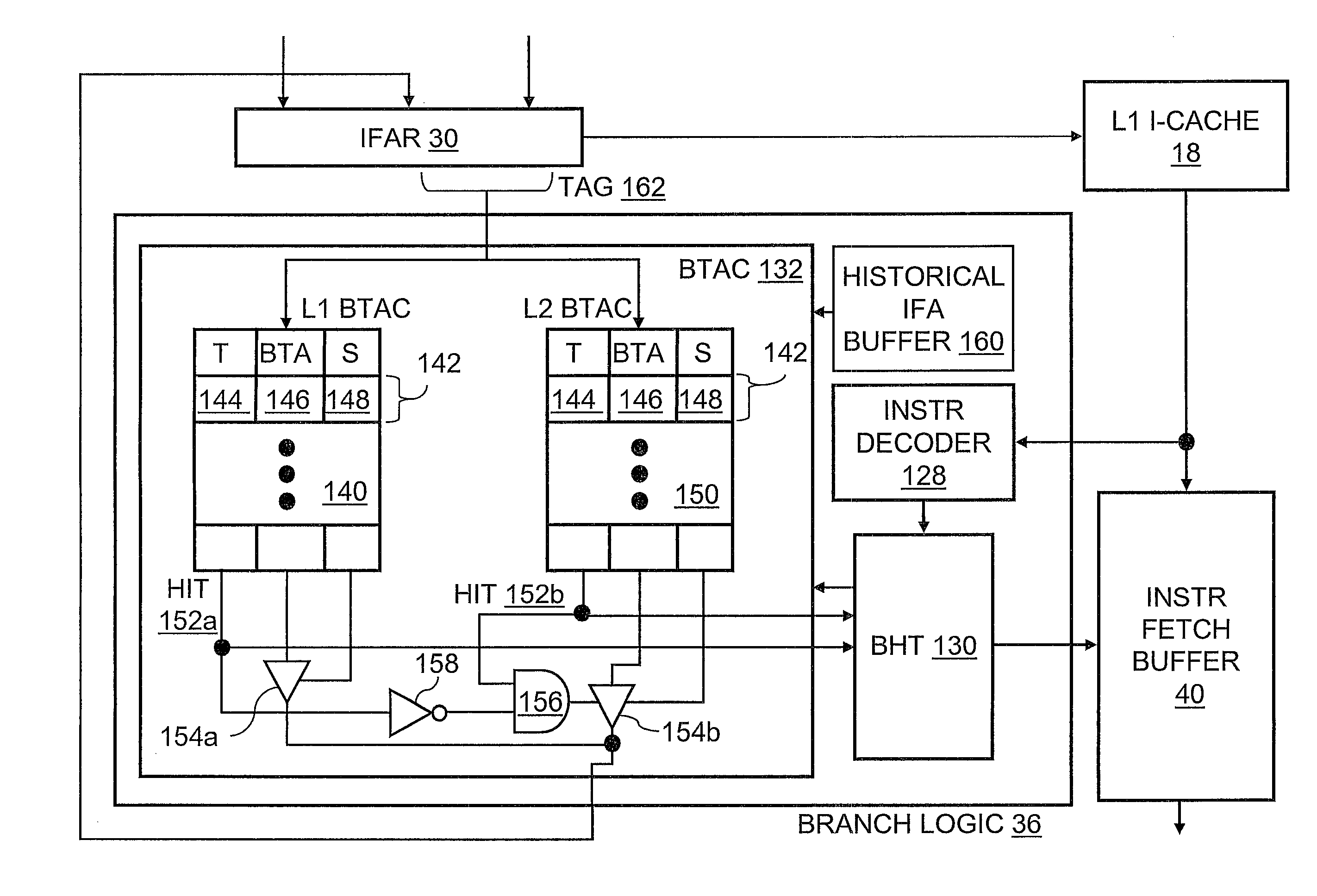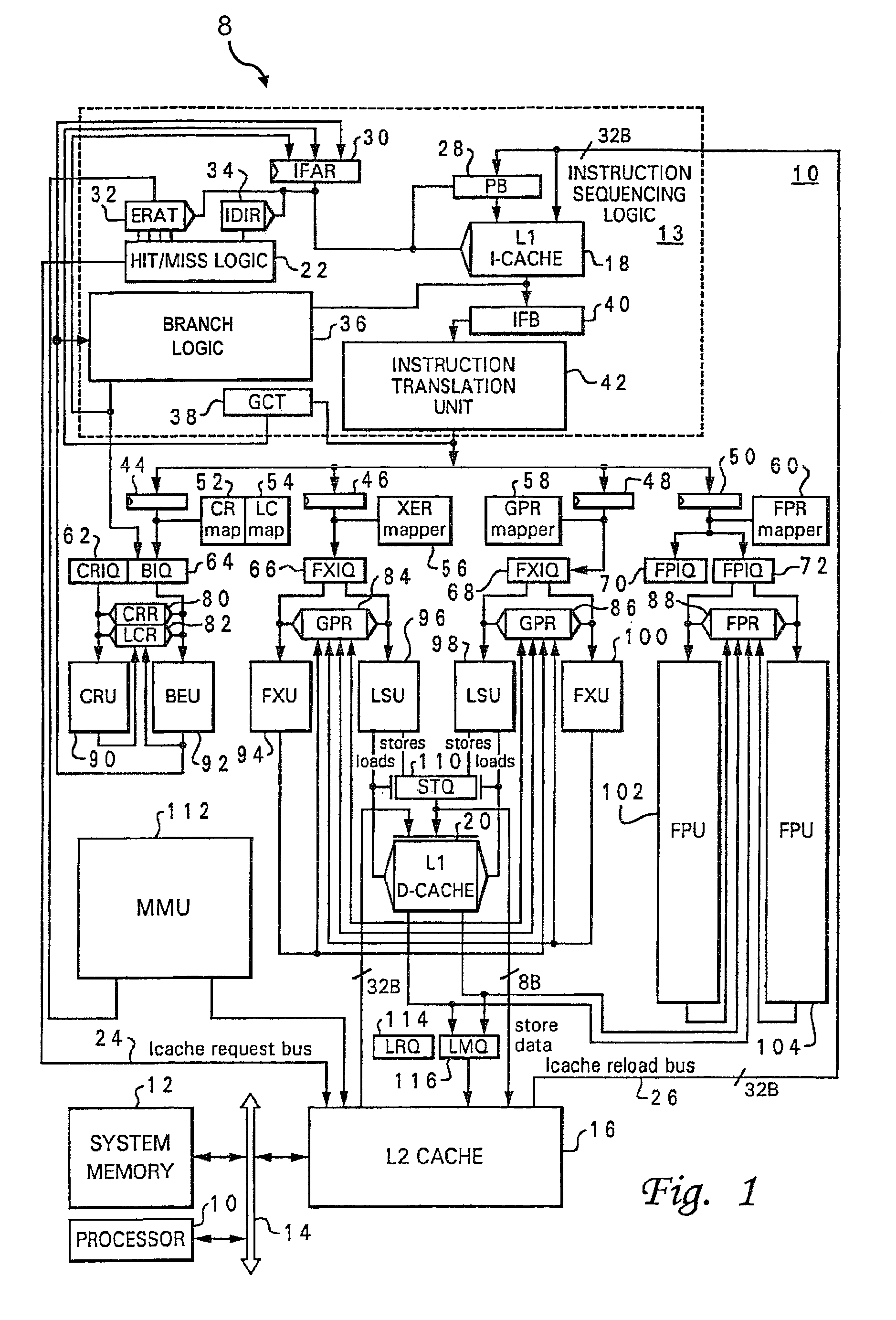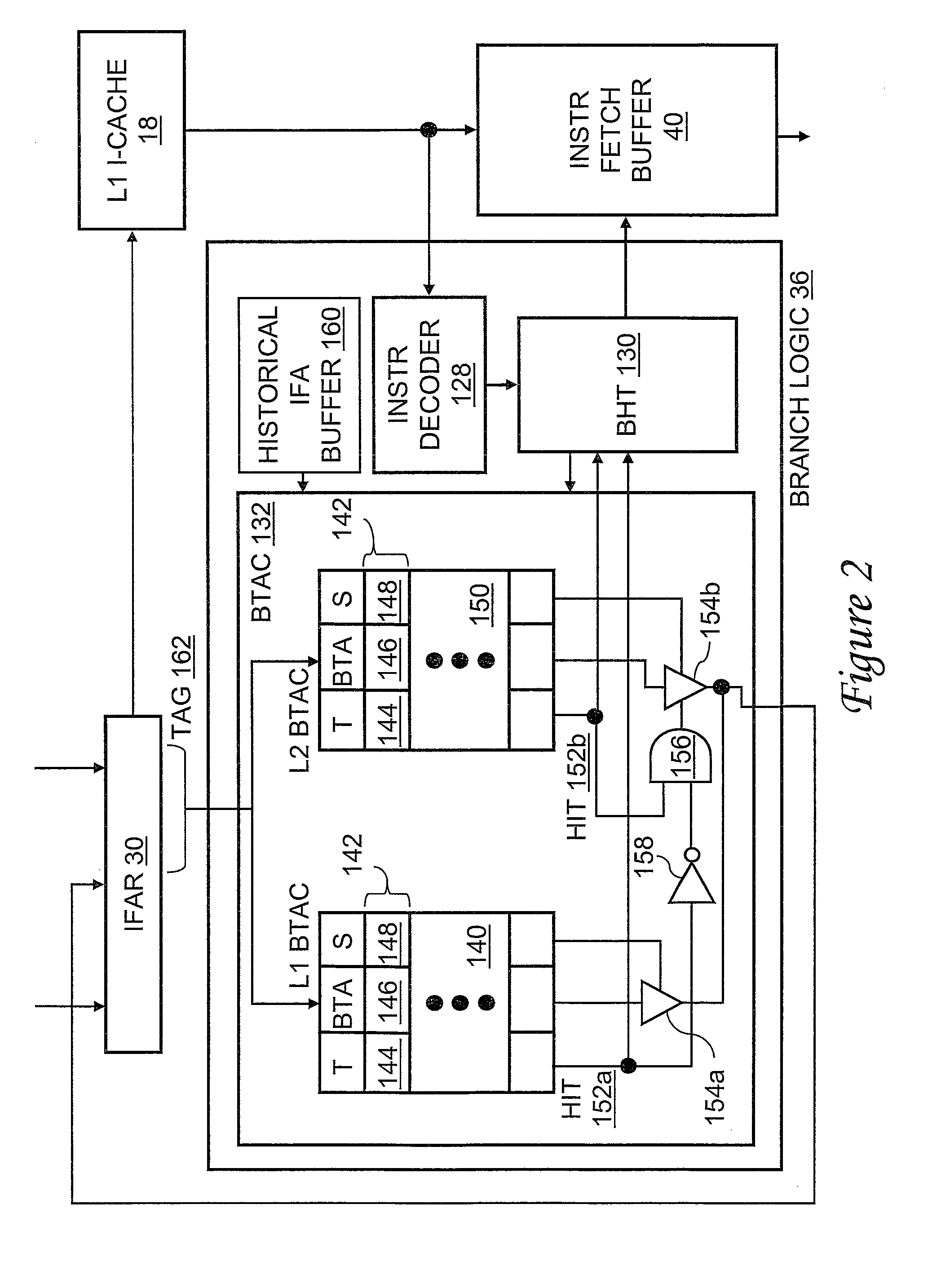Branch target address cache
a target address and cache technology, applied in the field of data processing, can solve problems such as wasting power dissipation, reducing performance, and creating significant performance penalties, and achieve the effect of improving the branch target address cach
- Summary
- Abstract
- Description
- Claims
- Application Information
AI Technical Summary
Benefits of technology
Problems solved by technology
Method used
Image
Examples
Embodiment Construction
[0021]With reference now to FIG. 1, there is illustrated a high level block diagram of an exemplary data processing system 8 in accordance with the present invention. As shown, data processing system 8 includes a processor 10 comprising a single integrated circuit superscalar processor, which, as discussed further below, includes various execution units, registers, buffers, memories, and other functional units that are all formed by integrated circuitry. Processor 10 may be coupled to other devices, such as a system memory 12 and a second processor 10, by an interconnect fabric 14 to form a data processing system 8 such as a workstation or server computer system. Processor 10 also includes an on-chip multi-level cache hierarchy including a unified level two (L2) cache 16 and bifurcated level one (L1) instruction (I) and data (D) caches 18 and 20, respectively. As is well known to those skilled in the art, caches 16, 18 and 20 provide low latency access to cache lines corresponding t...
PUM
 Login to View More
Login to View More Abstract
Description
Claims
Application Information
 Login to View More
Login to View More - R&D
- Intellectual Property
- Life Sciences
- Materials
- Tech Scout
- Unparalleled Data Quality
- Higher Quality Content
- 60% Fewer Hallucinations
Browse by: Latest US Patents, China's latest patents, Technical Efficacy Thesaurus, Application Domain, Technology Topic, Popular Technical Reports.
© 2025 PatSnap. All rights reserved.Legal|Privacy policy|Modern Slavery Act Transparency Statement|Sitemap|About US| Contact US: help@patsnap.com



